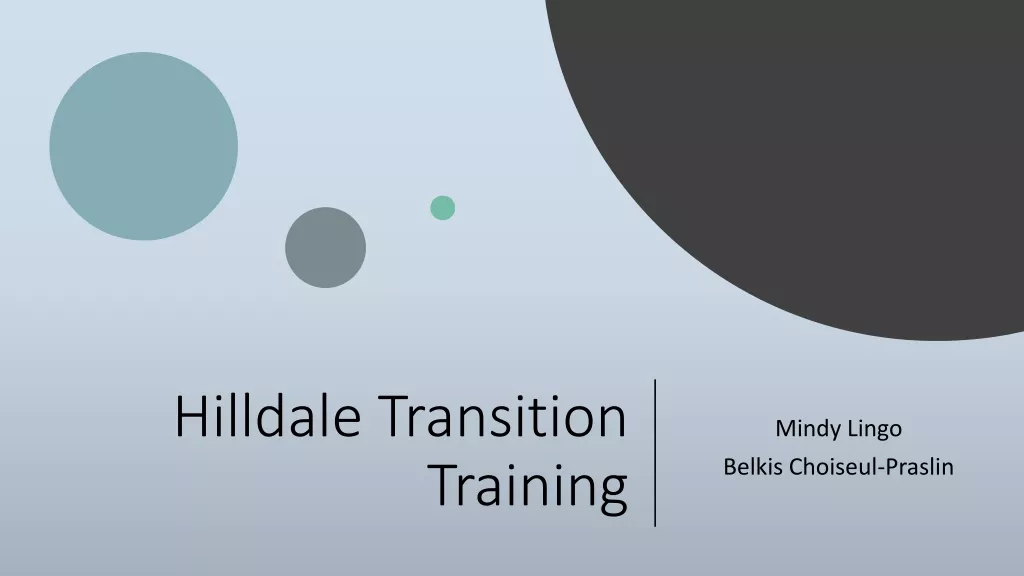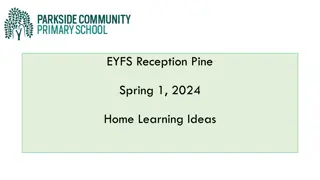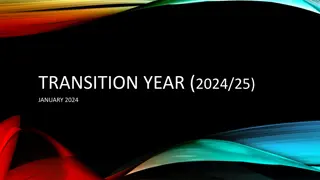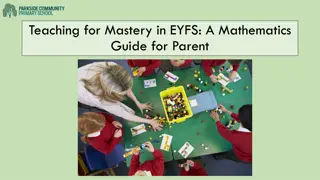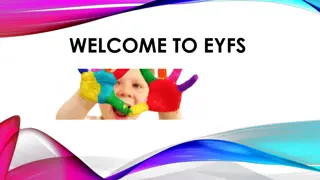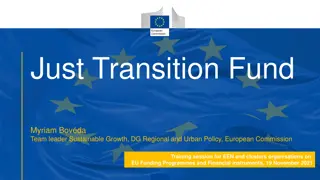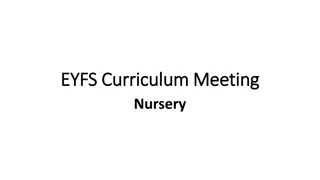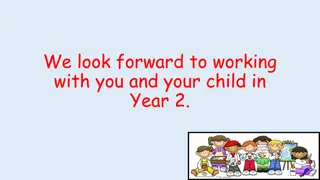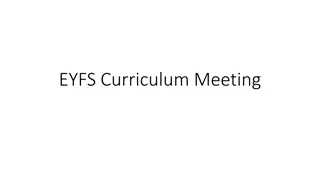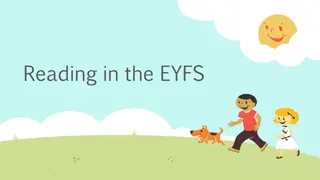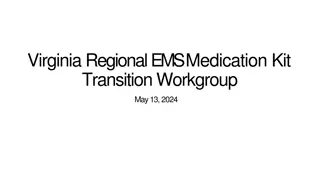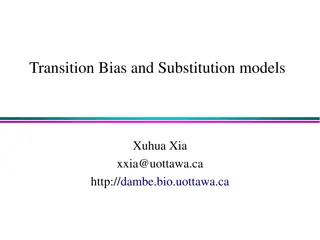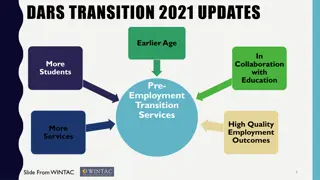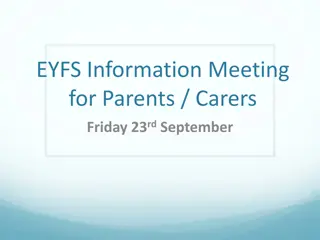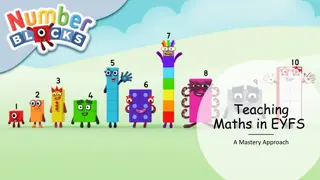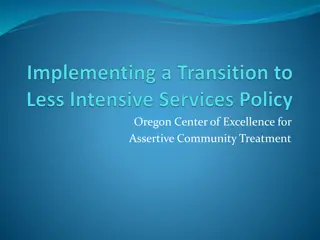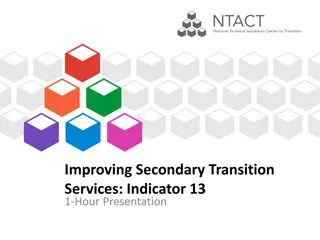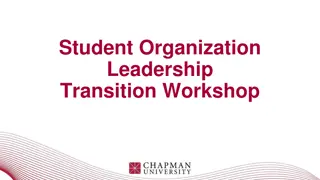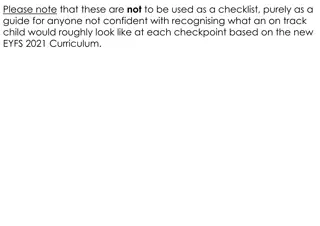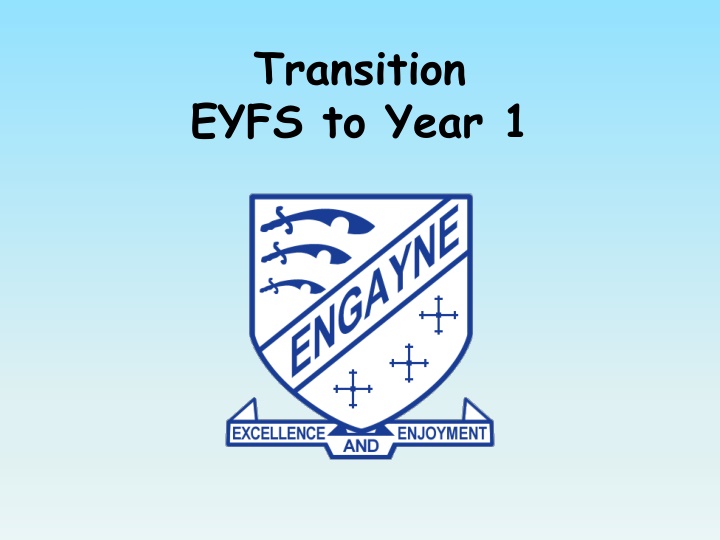
Transition from EYFS to Year 1: Progress, Learning Goals, and Expectations
Explore the transition from Early Years Foundation Stage (EYFS) to Year 1, highlighting children's progress, early learning goals assessments, shifts in learning approaches, expectations in Year 1, phonics lessons, and upcoming events like the Tiger Tea Party. Discover how children are supported in their development and academic journey through a mix of play-based activities and structured learning experiences.
Download Presentation

Please find below an Image/Link to download the presentation.
The content on the website is provided AS IS for your information and personal use only. It may not be sold, licensed, or shared on other websites without obtaining consent from the author. If you encounter any issues during the download, it is possible that the publisher has removed the file from their server.
You are allowed to download the files provided on this website for personal or commercial use, subject to the condition that they are used lawfully. All files are the property of their respective owners.
The content on the website is provided AS IS for your information and personal use only. It may not be sold, licensed, or shared on other websites without obtaining consent from the author.
E N D
Presentation Transcript
Transition EYFS to Year 1
Thank You We are very proud of the progress the children have made and thank you for all your support.
Early Learning Goals The EYFS profile requires practitioners to assess children against a set of 17 early learning goals (ELGs). Working towards Expected
EYFS (move away from child- initiated learning) In Foundation Stage, each area of learning and development is implemented through planned, purposeful play and through a mix of adult-led and child- initiated activity. Children learn by leading their own play, and by taking part in play which is guided by adults. There has been a balance between activities led by children, and activities led or guided by adults. As children grow older, and as their development allows, it is expected that the balance will gradually shift towards more activities led by adults, to help children prepare for more formal learning, ready for Year 1.
Year One Expectations: Children will be working in small groups with adult support. During this transition period there will be lots of practical/child initiated activities. We also have use of our outdoor area with a canopy next to the Year 1 classes. After the first term some children are able to work more independently and rely less on adult support. By the end of the year the majority of children can complete work with a high level of independence. In September all Year 1 children will swim weekly in 2 groups. Practise changing for swimming independently. A note will be distributed to inform you of when your child will be swimming in the first week back. Please name all items of clothing. Writing independently: Children are encouraged to use their sounds and write using scaffold sheets to support them. This will be done in small groups with adult support.
Phonics: The children will continue to have daily phonics lessons. In Year 1 all children are tested in reading 40 words real and alien in June ( Phonics screening check). We track and test children throughout the year. The pass mark this year was 32. Teach your monster to read and phonics play are free resources that you can access from home to support your child. Spellings are given in year 1 which usually consist of 5 words. These will be a mix of either words from the Year 1 high frequency word list or words that practise a spelling pattern e.g. ar, er. Children learn these at home and will be tested on these in class. Homework is sent out on Friday and is due back Wednesday. This consists of Reading at least 3x per week, spelling lists, website work (times tables 2 s, 5 s and 10 s) and sometimes a topic based learning activity (e.g. growing a seed and making a seed diary).
Friday 27thSeptember 2:30pm We would like to invite you to a Tiger Tea Party In September, the children will write invitations to you, inviting you in for a tea party on Friday afternoon.
Phonics Screening Children are tested at the start of the year on their phonics. (Digraphs) Continue to play games over the holidays and practise High Frequency Words in word wallet. For example; I Spy
Summer Holiday Activities Suggested activities for the children to complete over the summer holidays will be sent home in the last week of term. Literacy Maths Creative Summer Story Stones, Summertime Story Starters, Beach Time Painted ... Clip art of neapolitan ice cream cone with sprinkles and a cherry ...
Summer Slide It is characterised by steady progress in reading achievement throughout the school year, and a decline during the long summer holidays. Away from school, some students spend less time reading and miss out on: access to books and other reading resources reading practise encouragement to read role modelling support for reading
Reading Make reading enjoyable for the children, keeping reading fun with easy and self-selected material, talking about books, sharing books and reading time Read aloud to your child Make time for reading every day little and often Help your child choose just right books Let the children see you as reading role models. Encourage them to read independently Include some enjoyable literacy activities such as writing letters or postcards, reading recipes Manage electronic entertainment at home - turn off the TV or Playstation and reward reading Make regular trips to the public library and letting children choose books and magazines(Summer reading challenge) All children will have Bug Club books allocated for the holidays. Their logins will be active over the holiday period.

